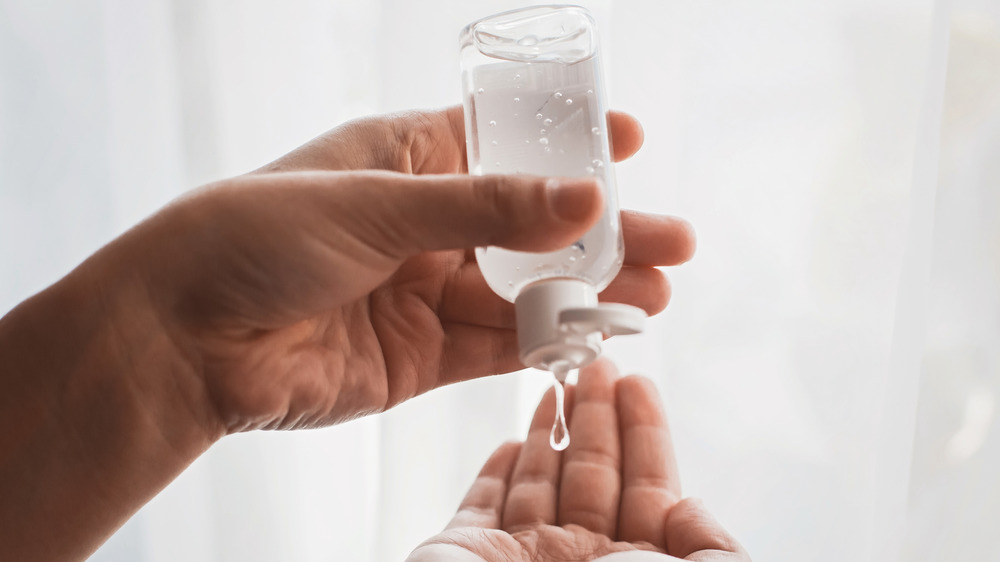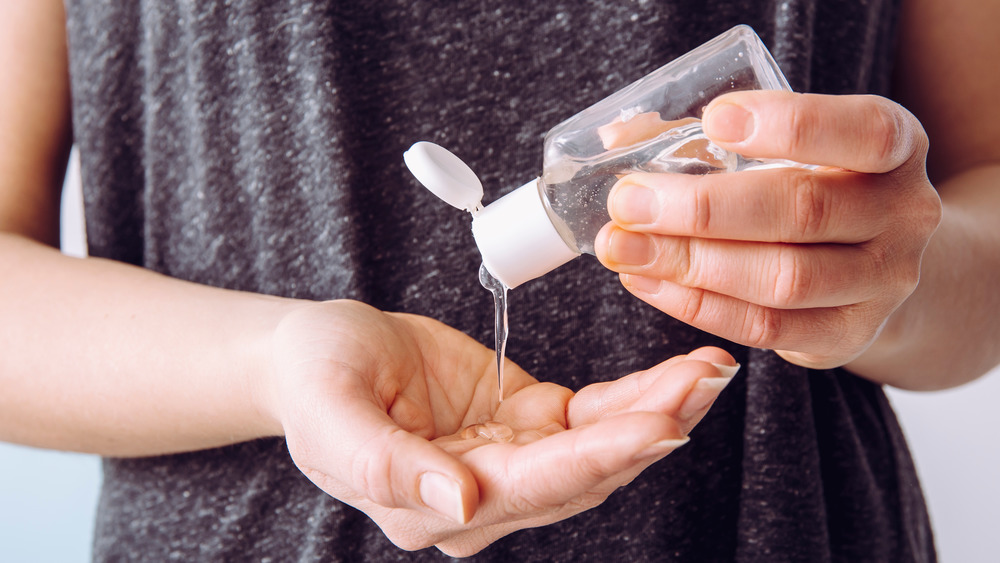How Long Does Hand Sanitizer Last On Your Hands?
Every year brings with it new "must-haves." For 2021, just as in 2020, those are a face mask and a bottle of hand sanitizer. While people are still advised to stay home as much as possible, isolating is not always an option. And that has caused a boom in the hand sanitizer industry. It's the next best thing to washing your hands with soap and water, which the CDC still says is the most effective way to reduce your infection risk.
But hand sanitizer has its limits. Washing your hands removes bacteria from your skin, especially if you follow the guidelines set down by the CDC. Hand sanitizer, on the other hand, kills the germs but leaves them on your skin. And the germ-killing effect only affects organisms already on your hands.
Hand sanitizer also isn't effective if your hands are greasy or extremely dirty, again because the germs cannot be removed from the skin. Grease and other grime reduce how well the sanitizer works, which means more germs stay alive on your skin after use. Worse yet, the effect doesn't last. Once the alcohol dries — after about 20 seconds, according to a printable PDF from the CDC — germs don't have much to worry about.
The effects of hand sanitizer don't last
A paper helmed by Dr. Nina A Gold of Hackensack Medical Center tested the differences between hand washing and hand sanitizer. Updated in June of 2020, the study is clear on how long hand sanitizer lasts.
Hand sanitizers containing 85 percent ethanol alcohol were found to be "swiftly germicidal" but had "no noticeable persistent residual activity."
Put simply, hand sanitizer only kills the germs on your hands when it is applied. Anything you touch after the sanitizer dries will not be disinfected. For this, you will need disinfectant wipes or sprays. If you apply hand sanitizer, and then touch something or someone, you will need to apply more sanitizer before you eat or touch your face. And every time you apply hand sanitizer, it needs the full 20-second dry time to be fully effective.
Hand sanitizer is a good second option for people that can't access soap and water. But it's not a replacement for properly washing your hands, as it has limits that users have to keep in mind now more than ever.


